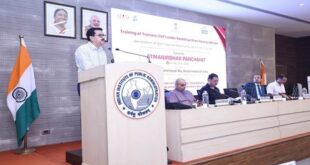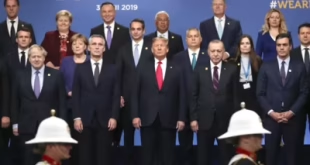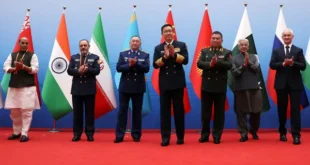Context:
A large object found on the shores of western Australia recently has been confirmed to be the debris of an Indian Space Research Organisation (ISRO) rocket.
Key details:
- Junk from space objects falling to the earth are not unheard of.
- Most such incidents involve relatively small fragments from rockets that survive the friction of the atmosphere.
- Most of the times, the space junk falls into oceans, thus posing little danger to human populations.
A few highly publicised falls:
- A large chunk of a 25-tonne Chinese rocket fell into the Indian Ocean in May 2021.
- The most famous such case remains that of the Skylab space station, a predecessor to the currently operational International Space Station, which disintegrated in 1979.
- Large chunks from this disintegration fell into the Indian Ocean, some of them falling on land in western Australia.
Threat:
- Even when falling into the oceans, which is more likely since 70 per cent of the earth’s surface is ocean, large objects can be a threat to marine life.
- It can be a source of pollution.
- There are no recorded incidents of these falling objects causing any appreciable damage anywhere on the earth.
- When they have dropped over land, so far, it has been over uninhabited areas.
Rules for space junk:
- Most space-faring countries are signatories to the Convention on International Liability for Damage Caused by Space Objects.
- This convention is one of the several international agreements that complement the Outer Space Treaty.
- It is an overarching framework guiding the behaviour of countries in space.
- The Liability Convention deals mainly with damage caused by space objects to other space assets, but it also applies to damage caused by falling objects on earth.
Compensation:
- The Convention makes the launching country “absolutely liable” to pay compensation for any damage caused by its space object on the earth or to a flight in air.
- The country where the junk falls can stake a claim for compensation if it has been damaged by the falling object.
- The amount of compensation is to be decided in accordance with international law and the principles of justice and equity.
Outer Space Treaty, 1967-:
- The outer space treaty is the first treaty and has all the major provisions of governing the outer space activities.
- This treaty prohibits colonization and militarization of outer space including moon and other celestial objects by any country.
- This treaty is founded on the principle of equality of space and exploration by all states and no state can claim ownership of space, moon or any other celestial object.
Rescue Agreement, 1968:
- The Rescue Agreement is based on the rights and obligations of states based to assist the astronauts in case of emergency or accident.
- This treaty clearly talks about the rights of the Astronaut and says that it is the duty of the state to assist the astronaut in the case of emergency.
Challenges/Concerns
- The present International Space Laws are only concerned with the use of space not with the problem of space junk.
- There is no law which talks about the problem of space debris.
- There is no law to prevent a country from destroying its own satellites.
- The existing laws only discuss about the liability of orbital debris and which country owns the object.
- However the origin of the space debris remains unknown.
- Even the term “Space Debris” is not mentioned in any of the UN treaties.
- All the treaties are silent regarding the satellites destruction in outer space, which results in generation of space trash and is also a reason for more such events were a country loses their satellites because of the trash in the orbit.
- All the present laws are voluntary that means they are not legally binding in nature.
Way Forward:
- The time has come to begin thinking about and debating in depth the various ways and means by which ‘legislation’ can help mitigate the dangers posed by orbital debris.
- One must be realistic about the possibilities for law to achieve effective results in the absence of money and political will.
SOURCE: THE HINDU, THE ECONOMIC TIMES, PIB
 Chinmaya IAS Academy – Current Affairs Chinmaya IAS Academy – Current Affairs
Chinmaya IAS Academy – Current Affairs Chinmaya IAS Academy – Current Affairs



